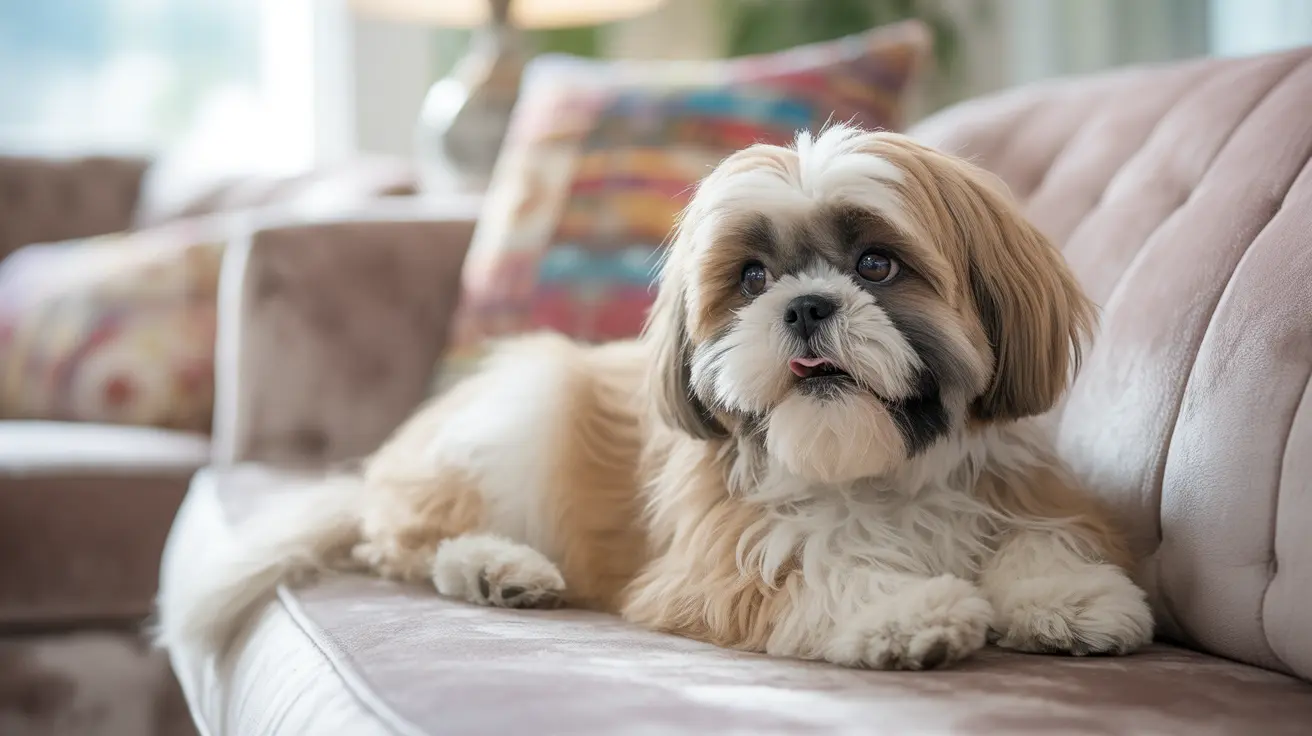Normal Causes of Panting in Shih Tzus
Panting is a natural cooling mechanism for dogs, especially important for Shih Tzus who have limited ability to regulate their body temperature through sweating. When your Shih Tzu pants, their breathing rate can increase from a normal 30-40 breaths per minute to approximately 300 breaths per minute.
- Temperature regulation on warm days
- Cooling down after physical activity
- Excitement during play or when greeting family members
- Brief periods of stress during new situations
Health-Related Causes of Excessive Panting
Brachycephalic Airway Syndrome
Shih Tzus are particularly susceptible to brachycephalic airway syndrome due to their facial structure. This condition can cause:
- Narrowed nostrils
- Elongated soft palate
- Compressed airways
- Increased difficulty breathing, leading to excessive panting
Medical Conditions
Several health issues can trigger unusual panting patterns:
- Heart disease
- Respiratory infections
- Cushing's disease
- Pain or discomfort
- Fever or infection
Stress and Anxiety-Related Panting
Emotional distress often manifests as excessive panting in Shih Tzus. Common triggers include:
- Separation anxiety
- Thunderstorms or loud noises
- Changes in environment
- New people or animals
Warning Signs and When to Seek Help
Contact your veterinarian if you notice:
- Panting that seems excessive or unusual
- Breathing difficulties or strange sounds while panting
- Panting accompanied by lethargy or behavioral changes
- Continuous panting in cool conditions
- Signs of distress such as blue-tinged gums or collapse
Prevention and Management Tips
To help manage your Shih Tzu's panting:
- Keep them cool during hot weather
- Maintain a healthy weight
- Provide regular exercise during cooler hours
- Ensure access to fresh water
- Create a calm, stress-free environment
Frequently Asked Questions
Why is my Shih Tzu panting excessively even when not hot or after exercise?
Excessive panting without obvious environmental causes could indicate underlying health issues such as heart disease, respiratory problems, or anxiety. If this occurs regularly, consult your veterinarian for a thorough examination.
How can I tell if my Shih Tzu's panting is due to heatstroke or normal temperature regulation?
Normal cooling panting should subside once your dog is in a cool environment. Signs of heatstroke include excessive drooling, bright red gums, vomiting, diarrhea, disorientation, or collapse. Heatstroke is a medical emergency requiring immediate veterinary care.
Can anxiety or stress cause my Shih Tzu to pant heavily, and how can I manage it?
Yes, anxiety can cause heavy panting. Management strategies include creating a safe space, using calming aids, maintaining routine, and considering behavior modification training or anti-anxiety medications prescribed by your vet.
What are the signs of brachycephalic airway syndrome in Shih Tzus causing panting and breathing difficulties?
Signs include noisy breathing, excessive panting, exercise intolerance, sleep difficulties, and potential collapse. This condition often requires veterinary intervention and may need surgical correction in severe cases.
When should I take my panting Shih Tzu to the vet because of underlying health issues?
Seek veterinary care if panting is excessive, occurs at rest, is accompanied by other symptoms like coughing or lethargy, or if your dog shows signs of respiratory distress. Early intervention is crucial for the best outcome.
Conclusion
While panting is a normal behavior for Shih Tzus, understanding the difference between regular and concerning patterns is crucial for their health and well-being. By staying attentive to your dog's breathing patterns and knowing when to seek professional help, you can ensure your Shih Tzu remains healthy and comfortable.






